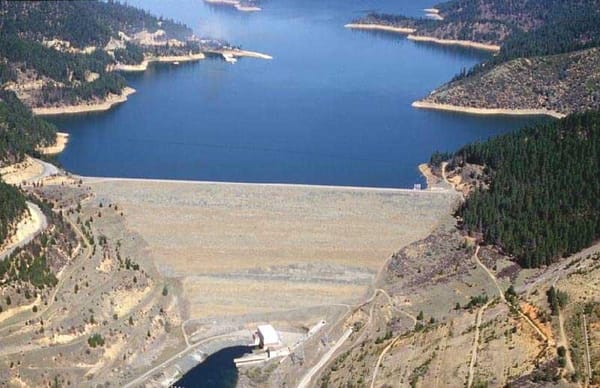California should examine SoCalGas ties to lawsuit against Berkeley’s natural gas ban
by CalMatters, CalMatters Network
May 2, 2023
Stay up-to-date with free briefings on topics that matter to all Californians. Subscribe to CalMatters today for nonprofit news in your inbox.
Guest Commentary written by

Matt Vespa
Matt Vespa is a senior attorney at Earthjustice.
A federal appeals court recently dealt a destabilizing blow to local governments across the West by ruling that a first-in-the-nation policy from Berkeley to phase out methane gas hookups in new buildings was preempted by federal law.
California has led the nation on policies to upgrade homes and buildings with clean energy appliances, rather than continuing to use fossil fuels like gas for heating and cooking. Berkeley’s original policy kickstarted a national movement for healthier housing, and in less than four years, it gained incredible traction. More than 100 cities and states have passed policies to incentivize clean energy homes, and 1 in 5 Americans now live in a region with a so-called building decarbonization policy.
These solutions are vital for local and state governments. Not only is pollution from buildings one of the largest sources of climate emissions in our communities, but this pollution carries significant public health risks. A recent study found close to 13% of childhood asthma in the U.S. can be attributed to gas stove use. In California, it’s more than 20%.
The recent ruling from 9th U.S. Circuit Court of Appeals rests on a broad interpretation of federal law preemption, which could become a significant barrier to local and state authority to upgrade housing regulations and fight climate change.
Thankfully, its immediate impact is limited. There are many viable pathways to ensuring new homes are built to run on clean energy and this ruling just impacts one. The decision, made by three Republican-appointed judges on the 9th Circuit, will also likely be appealed to the full 9th Circuit.
Hopefully sound legal analysis will prevail.
Time will tell just how damaging the court’s interpretation of federal preemption is, but it’s fair to say it impedes California’s efforts to end its reliance on polluting gas and the wishes of Californians who overwhelmingly support action on climate change. And on the same day that the 9th Circuit issued their decision, it became clear that SoCalGas may have had a hand in this setback.
While the California Restaurant Association, or CRA, has served as the face of this suit, it turns out that the gas industry played a key role. Public filings showed that when CRA filed its lawsuit, SoCalGas, the nation’s largest gas utility, began to pay millions in legal fees to Reichman Jorgensen, the same firm representing CRA.
While SoCalGas had previously denied the work was related, last week SoCalGas was forced by the California Public Utilities Commission to admit that it funneled more than $1 million of customer money to pay for legal services by Reichman Jorgensen that included work on federal preemption of local laws to limit gas, the very issue at the heart of the CRA litigation. This was at the same time SoCalGas ramped up its contributions to the CRA from $24,000 in 2019 to more than half a million in 2021.
That’s right. On the heels of the most crippling utility bill affordability crisis this decade in Southern California, SoCalGas used money collected through gas bills to develop the legal claims underpinning the challenge to a policy that’s been embraced by dozens of California communities, including Los Angeles.
The revelation comes as a result of Earthjustice’s client, the California Environmental Justice Alliance, intervening in SoCalGas’ request to California regulators to increase gas rates by more than 20%. The organization’s goal is to identify and block utility spending that impedes California’s transition away from fossil fuels.
Supporting CRA’s lawsuit is very much in the gas industry’s financial interests, and against the interest of our communities. Locking Californians into the use of polluting gas at home bolsters gas industry profits.
In fact, SoCalGas was previously sanctioned for misusing customer money to directly oppose local government adoption of all-electric building codes. As part of its current rate request, the utility wants customers to pay for the close to $800,000 it spent to sue the state of California for its purported failure to sufficiently promote gas – even though methane gas is at the heart of our state’s growing affordability crisis.
While SoCalGas is now claiming it “unintentionally categorized” costs of research underlying the legal basis in CRA’s lawsuit as customer funded, there’s ample evidence to suggest this is a pattern of attempting to charge customers for its profit-driven efforts that obstruct climate action.
California gas customers were put through the wringer this winter, and California cities are doing all they can ensure we can fight climate change while stabilizing energy bills. Regulators must hold the gas industry accountable to ensure it is not a barrier to building healthier, more affordable communities.



